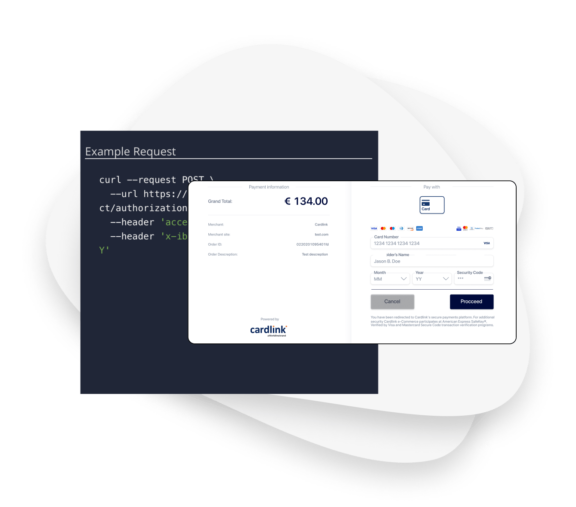Connect your e-shop in just 3 easy steps
Explore, subscribe to and be creative with Cardlink APIs

Cardlink APIs
Why choose us
DEVELOPERS
COMPANIES
Software Developers
We make sure your customers’ payment information is transported safely and securely
Deliver value with high quality APIs
Up to date API documentation, clear guidelines for test app registration, sample code and much more
Developer friendly experience
Sign-up, get access and start working in just a few minutes, through an automated process and without the need of intermediates
Great test environmets
Safely test in our sandbox, get error notifications, API uptime, analytics and much more
Companies
Create new business opportunities with the safeguarded Cardlink’s e-Commerce platform and integrate features that help your business grow
Time saving
Money saving
Transparency on implementation
step by step
In just 3 easy steps
Choose an API
Use the sandbox to experiment, then code and test against the provided test data.
Get approved
With just a click, Cardlink is informed that you are ready to go Live!

